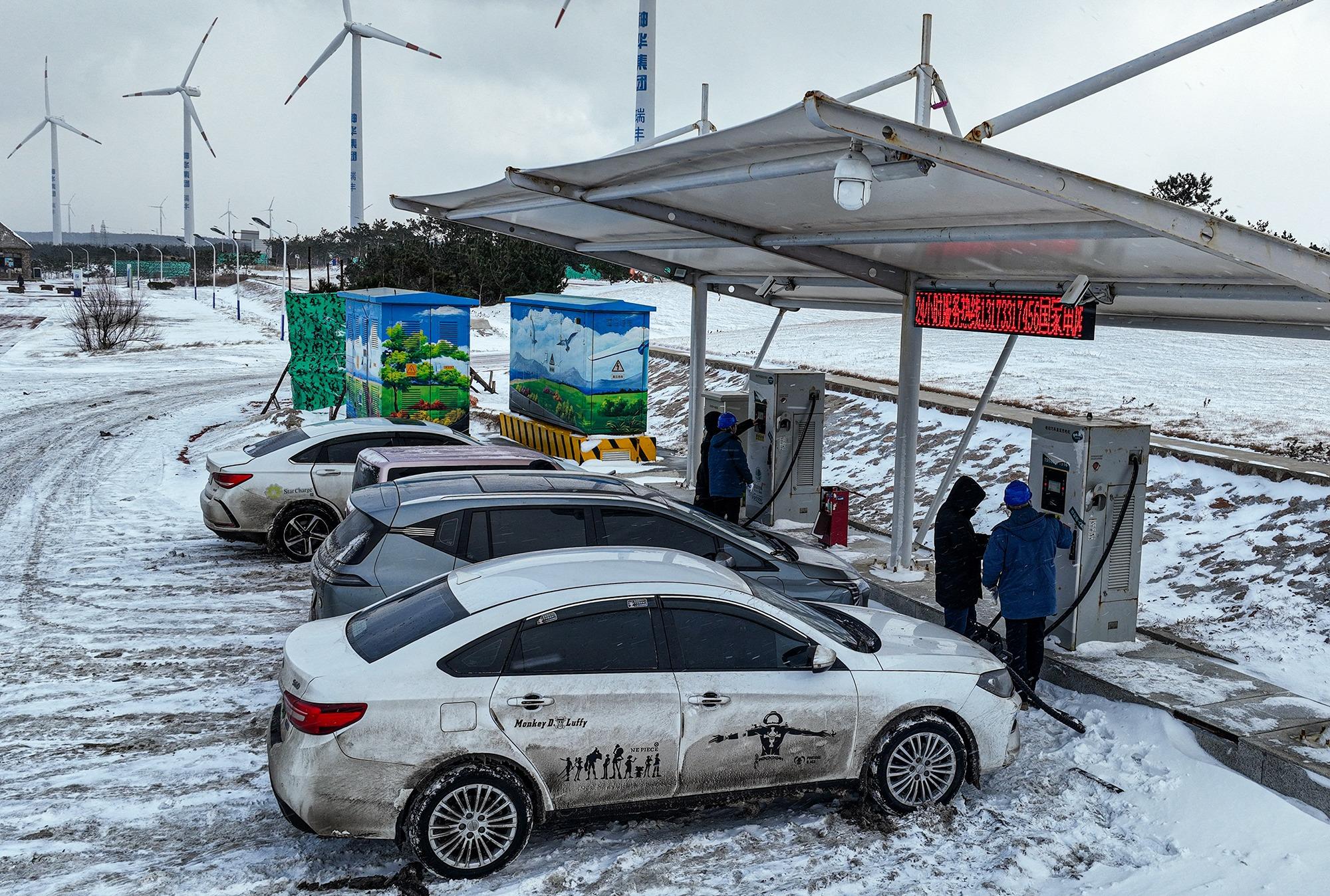 Workers inspect the charging equipment at a charging station at Dream Sea tourist resort in Rongcheng, Shandong province, on Dec 20, 223. (LI XINJUN / FOR CHINA DAILY)
Workers inspect the charging equipment at a charging station at Dream Sea tourist resort in Rongcheng, Shandong province, on Dec 20, 223. (LI XINJUN / FOR CHINA DAILY)
This winter's exceptionally cold days have put electric vehicle batteries to the test, as extremely cold weather causes them to rapidly lose power and makes them slower to charge, resulting in overall cost increases and inconvenience for EV drivers.
However, despite the squeeze being put on EVs this winter, experts claim that the next generation of batteries will remedy this nuisance.
The industrywide issue of decreased battery performance in cold conditions has led to hesitation among buyers and anxiety among drivers.
The slow charging and rapid power loss that EVs encounter during winter are compounded by the need to use more energy with air conditioning and seat heating systems switched on.
Li, an EV owner in Shanghai, told China Business Journal in December that he rarely uses air conditioning while driving in winter but found it necessary this winter because of the extreme conditions.
He spoke of the rapid power loss his vehicle experienced as soon as he put the heating system on, reducing the overall driving range.
From late December, a significant and in some cases historic drop in temperatures has gripped large parts of China.
Temperatures in northern China have consistently been 5 C or more below the average for this time of year.
Many EV owners are also conscious of charging costs and choose off-peak hours to recharge.
"After finishing work at night, I definitely need to charge because it's cheaper. During the day, the rate is 1.58 yuan (22 cents) per kilowatt-hour, but after 10 pm, it drops to 0.95 yuan," a taxi driver told the journal.
Carmakers are taking steps to address the challenges posed in winter.
Some companies are incorporating insulation systems into battery packs to maintain optimal operating temperatures, in order to prevent degradation in battery performance.
As battery research and development continues, they are becoming more powerful than their predecessors, thus reducing problems with cold temperatures.
Huang Song, professor of automotive engineering at Wuhan University of Technology, said the next generation of batteries will be the same size and weight as the previous generation, but have twice the power.
"This breakthrough addresses a common concern among users who have experienced challenges with electric vehicles in extremely low temperatures. The upcoming technology promises to overcome such obstacles, ensuring a reliable future for the EV," he said.
Despite challenges, the Chinese EV market has expanded robustly in recent years.
According to data from the China Association of Automobile Manufacturers, 8.3 million EVs were sold in the country from January to November last year, an annual increase of more than 30 percent.


